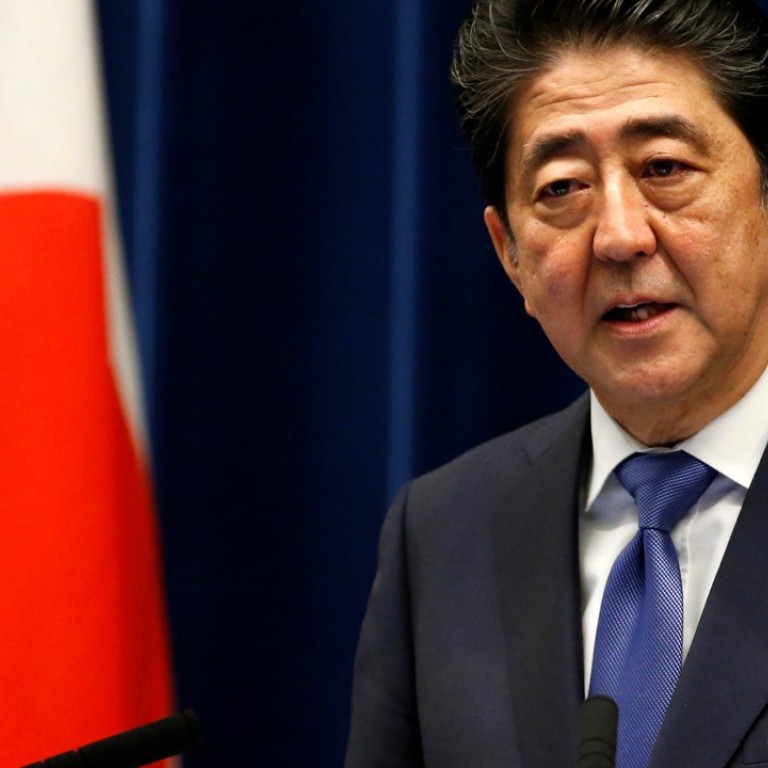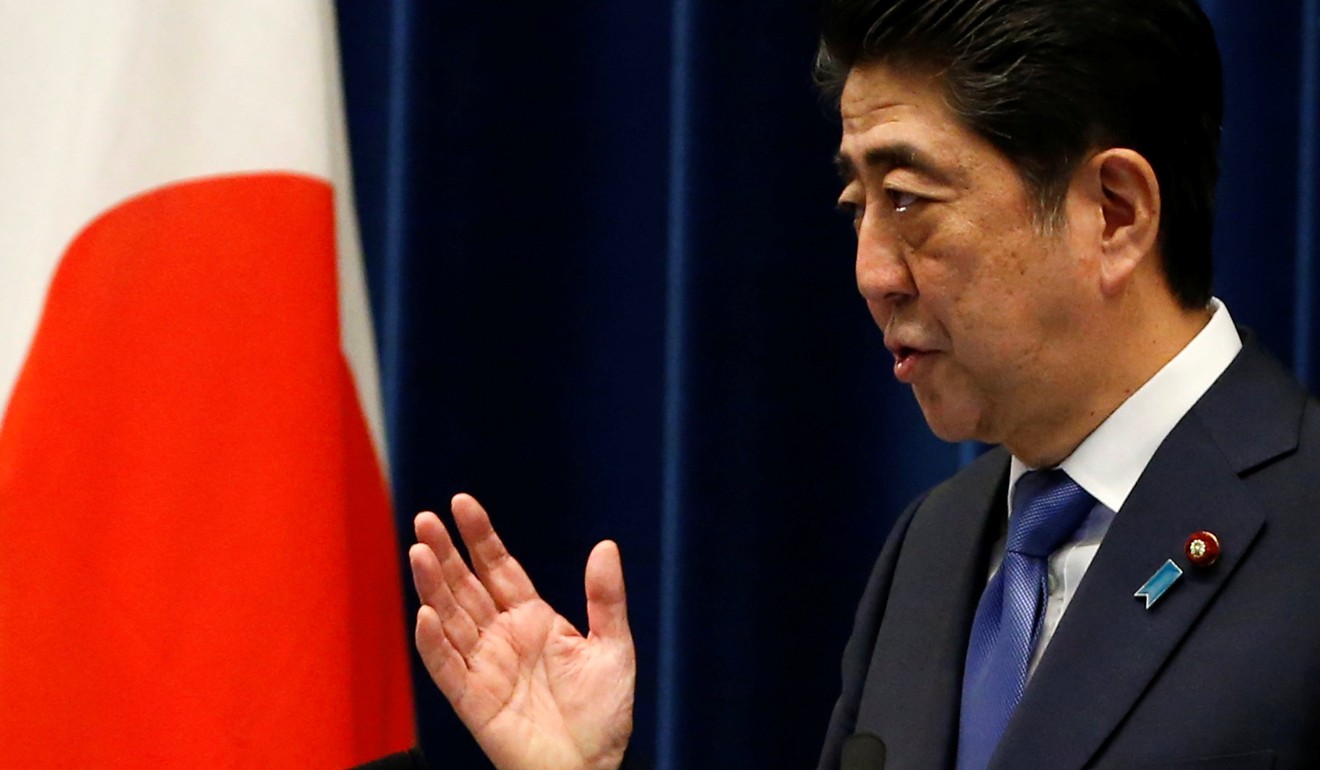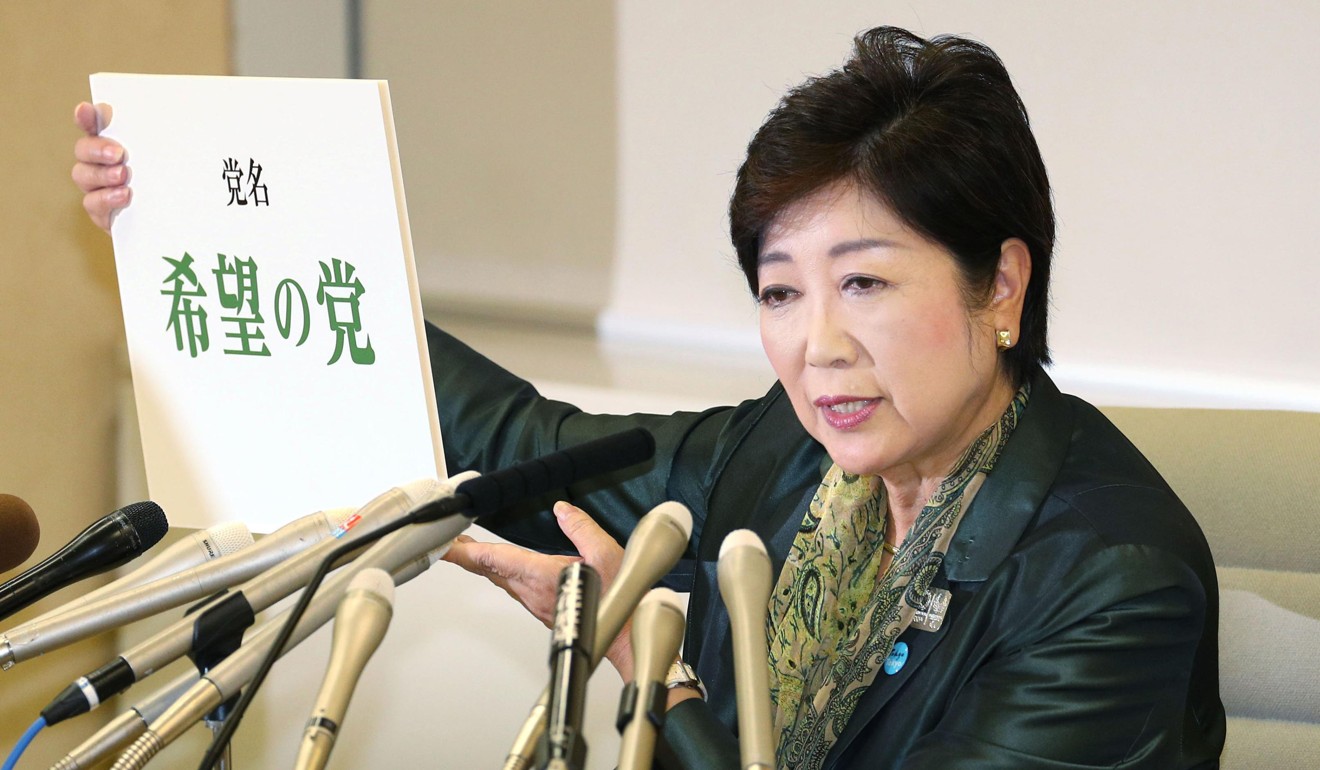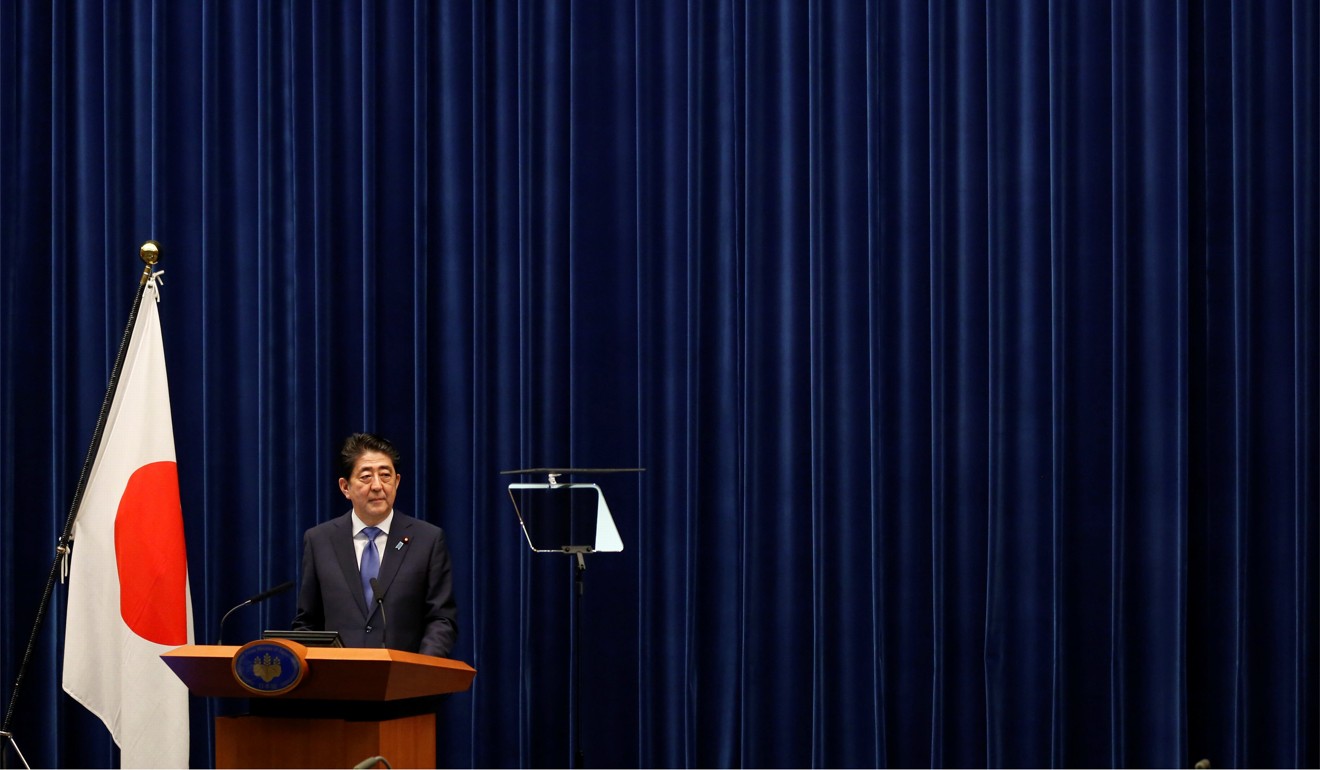
Japanese PM Shinzo Abe to call snap election, promises to quit if party loses its majority
Prime minister’s popularity has rebounded after recent scandals and weekend poll showed 44 per cent of voters would pick his party
Japanese Prime Minister Shinzo Abe said on Monday he will step down as prime minister if his party fails to win a majority in an upcoming election.
He announced plans to dissolve the more powerful lower house of Japan’s parliament when it convenes on Thursday and call a snap election.
Abe said he aims to win at least 233 seats, or a majority, in the 475-seat lower house and stay in power.
He hopes to capitalise on a weak and fractured opposition to sweep back into power, as polls show him regaining ground after a series of scandals.
“I will dissolve the House of Representatives on the 28th” of September, Abe told reporters, a precursor to a general election. The prime minister did not give a date for the election but it will reportedly be on October 22.

Surveys suggest voters approve of the hardline stance taken by the nationalist Abe on North Korea, which fired two missiles over the country in the space of a month and has threatened to “sink” Japan.
According to a weekend poll in business daily Nikkei, 44 per cent of voters plan to pick Abe’s conservative Liberal Democratic Party (LDP), while only 8 per cent favoured the main opposition Democratic Party.
Nevertheless, one fifth of those polled said they were still undecided, potentially opening the door for gains by a new party formed by allies of the popular mayor of Tokyo Yuriko Koike, which will field dozens of candidates.
In an apparent bid to steal Abe’s limelight, Koike went before the cameras just hours before his announcement to announce she was creating a national political party called “Kibo no To” (Hope Party).

“Japan is facing a difficult time considering the situation in North Korea. Economically, the world is making a big move while Japan’s presence is gradually declining,” said Koike. “Can we continue letting [the existing lawmakers] handle politics?”
But Jeff Kingston, director of Asian Studies at Temple University in Japan, said there was “no opposition worthy of the name in Japan”.
“The LDP is a giant among dwarves. It would take a major scandal to derail the Abe express,” said the analyst.
The winner of the expected snap election faces a daunting in-tray of challenges ranging from an unprecedented crisis with North Korea to reviving the once world-beating Japanese economy.
In addition to threats to destroy Japan, Pyongyang has fired two missiles over the northern island of Hokkaido in the space of less than a month.

However, the North Korea crisis appears to have given the hawkish Abe a welcome boost in the polls following a series of scandals, including allegations he improperly favoured a friend in a business deal.
Despite a recent run of growth, the election winner will also have to contend with a sluggish economy, as the heavily indebted country grapples with a low birth rate and a shrinking labour force.
“Despite the seemingly favourable backdrop for Abe, there are risks in calling a snap election,” said Yoel Sano, an analyst at BMI research.
Voters may see it as a “cynical and opportunistic move” designed to divert attention from scandals that weighed on Abe’s popularity, warned Sano.

.png?itok=arIb17P0)